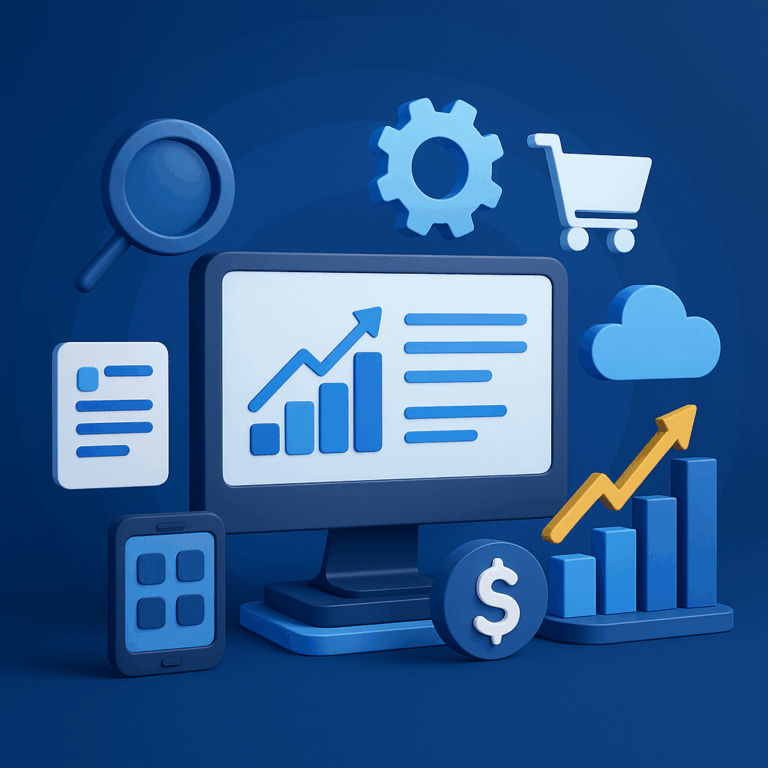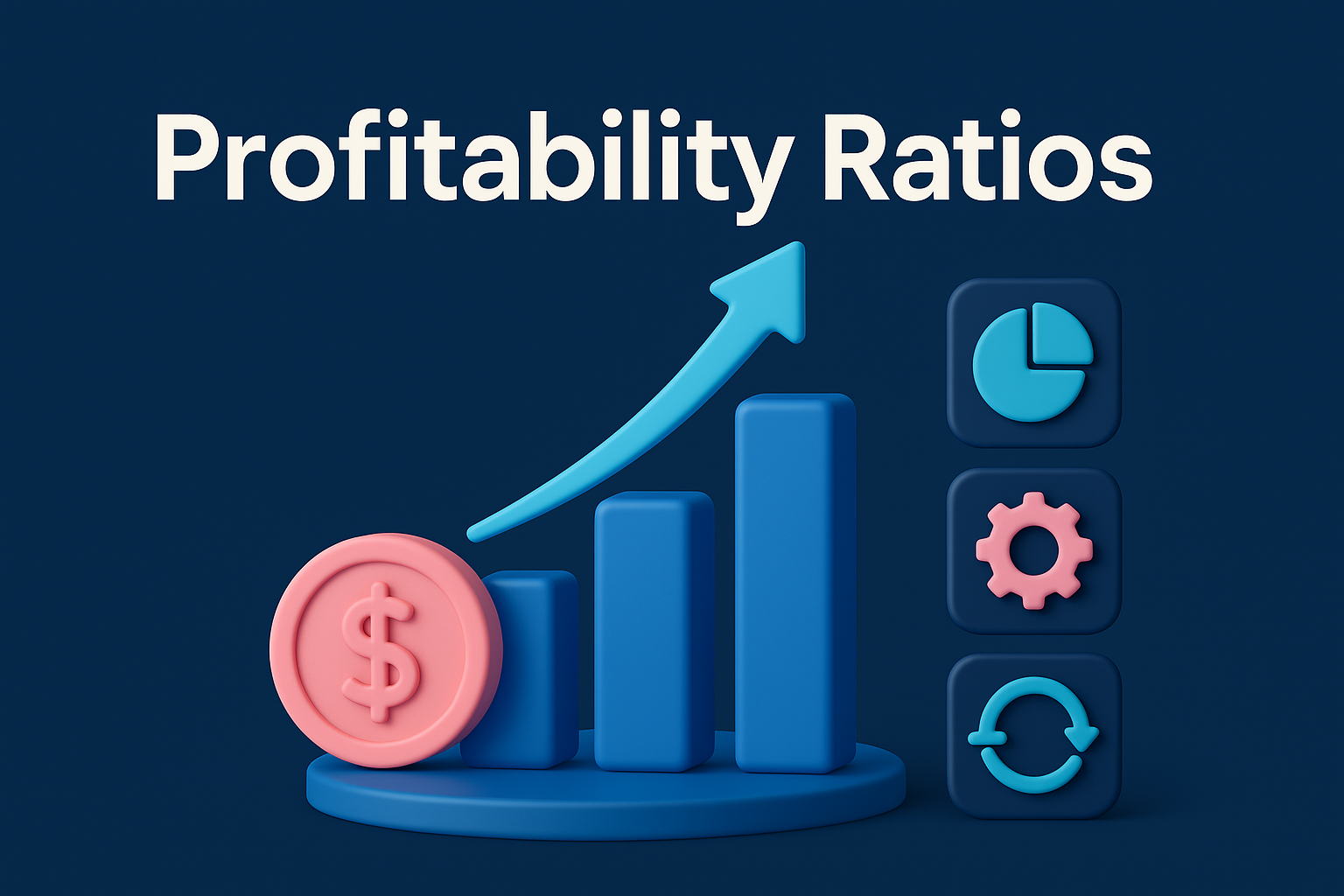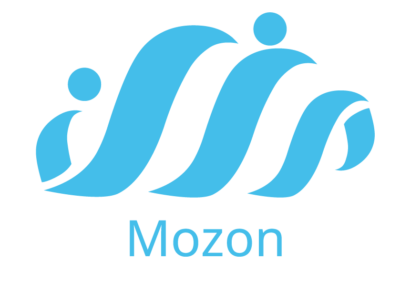Introduction: Software is Not Just Code… It’s the Architecture of Change
From the moment humans began transforming ideas into executable machine instructions, software solutions emerged as a necessary response to the growing complexity of modern life. Today, software solutions are not merely operational systems that streamline daily tasks; they are intelligent frameworks that redefine how we think, decide, and manage organizations.
In this article, we explore software solutions as a complete science, delving into their engineering, analytical, and strategic dimensions—and highlighting how a company like Mozon Technologies plays a vital role in shaping this digital future for modern businesses across a wide range of sectors, supported by real-world case studies.
1. What Are Software Solutions?
Software solutions refer to a set of programs, applications, and platforms designed to meet specific needs of individuals or organizations. Unlike off-the-shelf software, these solutions are often tailored to match the organization’s structure, policies, and operations.
Examples of software solutions include:
ERP (Enterprise Resource Planning) systems
CRM (Customer Relationship Management) tools
HR Management Systems
E-learning platforms
Billing & e-Invoicing solutions
Business Intelligence & AI-based analytics
These tools empower modern businesses to operate efficiently, make better decisions, and compete in a digitally-driven economy.
2. Why Are Software Solutions a Strategic Necessity Today?
✅ Process Acceleration
A good software solution reduces task completion time by up to 70%, cutting down on resource and financial waste.
✅ Decision-Making Precision
With real-time data and analytics, executives can make evidence-based decisions rather than relying on intuition.
✅ Regulatory Compliance
Modern software ensures alignment with cybersecurity standards, tax laws, labor regulations, and more.
✅ Organizational Agility
In a fast-changing world, organizations need flexible digital frameworks that can adapt—and that’s what modern software provides to a wide range of industries.
3. Characteristics of Successful Software Solutions
| Attribute | Explanation |
|---|---|
| Flexibility | Adaptable to operational changes and workflows. |
| Stability | Reliable, with minimal downtime or errors. |
| Integration | Compatible with other systems and APIs. |
| User Experience | Intuitive and accessible interfaces. |
| Security | High-level protection for sensitive data. |
| Analytics | Smart dashboards and decision-support reports. |
These characteristics are commonly illustrated in case studies from leading tech adopters.
4. Types of Software Solutions by Function
| Solution Type | Primary Function | Target Users |
|---|---|---|
| ERP | Resource planning & coordination | Medium to large enterprises |
| CRM | Customer engagement & sales | Marketing and sales teams |
| HRMS | Human capital management | HR departments |
| E-Learning | Digital training & education | Schools, universities, companies |
| Billing & Invoicing | Financial compliance & automation | Businesses, accountants |
| BI & Analytics | Strategic data insights | Executives and analysts |
This wide range of functions demonstrates how software solutions cater to the real-world needs of modern businesses.
5. From Operational Systems to Thinking Systems
In modern software philosophy, a system is no longer a collection of screens and databases—it is the digital extension of the organization’s intelligence.
For instance, an advanced accounting program doesn’t just record invoices; it generates alerts, evaluates financial performance, and recommends solutions.
A software solution is no longer a tool—it is the second brain of the enterprise. This concept is repeatedly reinforced through case studies in digital transformation.
6. The Journey to Software Transformation: Where to Start?
Process Diagnosis: Identify recurring pain points and inefficiencies.
Solution Selection: Choose based on your organization’s size, sector, and future goals.
Phased Implementation: Gradual deployment with testing and training stages.
Ongoing Optimization: Solutions evolve with your business—continuously enhance them.
These stages are commonly seen in successful transformation case studies across a wide range of modern businesses.
7. The Future of Software Solutions: What’s Next?
✅ Cloud Computing: No need for local infrastructure; operate anywhere.
✅ Artificial Intelligence: Smart systems detect patterns and forecast disruptions.
✅ Extreme Customization: Systems are tailored for each organization, not one-size-fits-all.
✅ SaaS Dominance: Software as a Service is now the preferred delivery model.
✅ UX-Centered Design: The simpler the interface, the more efficient the experience.
Each of these trends is being validated through global and regional case studies involving modern businesses that embrace digital agility.
8. The Pioneering Role of Mozon Technologies
Mozon Technologies stands as one of the most forward-thinking software companies in the Middle East, embodying the intelligent software philosophy across a range of sectors.
Mozon offers a diverse ecosystem of integrated systems including:
✅ MACC – Financial Management
✅ MHR – Human Resource Management
✅ MRM – Property Management
✅ MOM – Operations Management
✅ MEDU – Education Management
✅ MIS – E-Invoicing Integration
✅ MRP – Full ERP Platform
Mozon’s competitive advantages include:
Arabic-first design and language support
Full compliance with local laws and tax regulations
Modular design and high scalability
Seamless integration with biometric and payroll systems
Continuous support and updates
Proven success with leading organizations like RealSoft, as demonstrated in multiple case studies
Conclusion: Software Solutions Are the Invisible Infrastructure of Success
Without intelligent software, organizations fall into chaos, redundancy, and poor decision-making. With the right software in place, they gain a scalable, flexible, and forward-looking foundation.
Investing in software is not a technical luxury—it’s a strategic mandate. And with a trusted partner like Mozon Technologies, modern businesses are not just deploying software; they are architecting their future through proven solutions and insightful case studies that span a wide range of industries.





